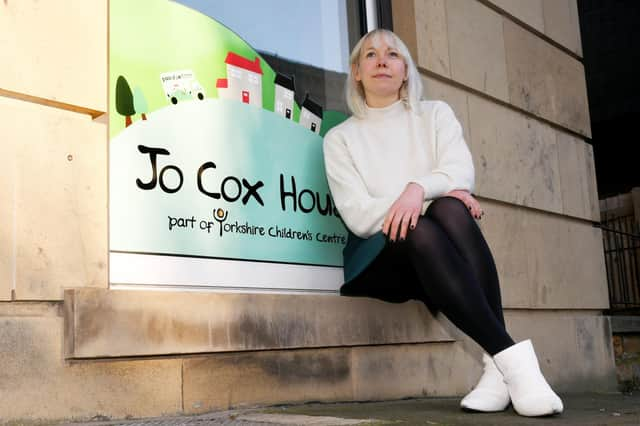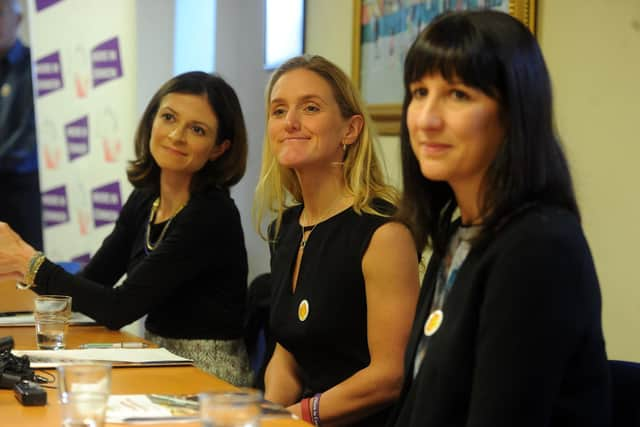Jo Cox Foundation aims to ensure nobody is lonely this winter


While it seems there will be no return at the moment to any of the severe restrictions of the last two years, isolation continues to be an important topic – as well as a health concern – and indeed was before anyone had ever heard of coronavirus lockdowns.
To recap: long-term loneliness, it has been found, can be as damaging to our health as smoking 15 cigarettes a day.
Advertisement
Hide AdAdvertisement
Hide AdBut the Jo Cox Foundation, named after the former Labour MP for Batley and Spen, has continued the late politician’s work to stop people feeling so lonely.


Its latest Great Winter Get Together campaign was launched earlier this week, on "Blue Monday", with the aim of helping people to reach out for help or extend a hand to those they suspect of needing one.
Challenging the perceived stigma of speaking about the subject, the foundation particularly wants to get the message across to people who don’t fit the “stereotypical image of a lonely person”, which for many is still an elderly person who lives alone.
Su Moore, who is CEO of the foundation, said: “Over the last two years, we’ve definitely heard a lot more about loneliness.
Advertisement
Hide AdAdvertisement
Hide Ad“Through lockdown, people were more aware that it’s an issue because lots more people were experiencing loneliness, potentially for the first time or in a more severe way. So I think that general awareness of it as an issue has been raised.
“But I think for lots of people, there’s still a feeling that if you’re lonely, it’s somehow your fault – and that’s absolutely not the case.
“We do hear a lot that people think that if you say that you’re lonely, that means you don’t have any friends, that means that you don’t have any connections, but we know that even the people who seem the most sociable, who seem to be the most outgoing, feel really lonely.”
Last summer, the foundation did a campaign linked to the launch of its "chat bot" service – one which featured famous faces and was promoted again during December
Advertisement
Hide AdAdvertisement
Hide AdThis included some well-known personalities, from Love Island contestants to Nick Grimshaw and Judi Love.
Still, while Brits most commonly think that over-80s are the most lonely age group, the reality is not so clear-cut.
People aged 16 to 24 appear to be, with 94 per cent reporting ever feeling lonely in the past month, compared to 51 per cent of those in the oldest age bracket, according to the foundation’s research, which involved ICM Unlimited interviewing a representative sample of the UK population in December.
Only eight per cent correctly identified young people as being the loneliest, demonstrating a disconnect between what the foundation’s research indicates and public perceptions.
Advertisement
Hide AdAdvertisement
Hide AdThis may have been exacerbated during the pandemic when “lots of people whose ambitions for either university or travelling or post-school work have all been changed,” says Su. “So it’s been a really difficult time for that age group.”
The foundation works with a youth advisory panel to hear about the perspectives of people in a lower age bracket.
She adds: “One of those members said to us there’s this perception that you’re always connected because you’re always on Snapchat or TikTok but actually that doesn’t necessarily really give you the one-to-one or the personal connection that is necessary to alleviate loneliness.”
There is also pressure to put the “always perfect image on social media”, which means that they “can’t always think honestly about what they’re feeling,” she says.
Advertisement
Hide AdAdvertisement
Hide Ad“We need to reach out to those young people in our lives and support them. Because what we also have found is that people don’t realise it’s young people who are the loneliest – there’s still this perception, I think for lots of people, when you say who’s the loneliest person in society, they’ll think about an elderly person sat by themselves, but actually, that’s not the case.
"It’s those younger people who are really struggling at the moment.”
Su added: “Sometimes the smallest things can make the biggest difference. When you come to have a conversation about loneliness it doesn’t have to be something that you’re really anxious about and you spend hours or days working up to.
"I’ve found that when I’ve opened up to friends and had a chat that people are quite often open to talking about their experiences.”
Resources useful for taking part in the Great Winter Get Together can be found online at www.greatgettogether.org